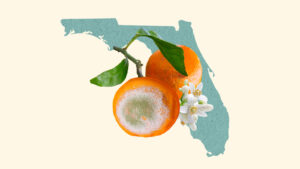A group of the world’s last wild horses have returned to their homeland Kazakhstan after an absence of about 200 years. The seven horses, four mares from Berlin and a stallion and two other mares from Prague, were flown to the central Asian country on a Czech Air Force transport plane.
The wild horses, known as Przewalski’s horsesonce roamed the vast steppe grasslands of Central Asia, where It is believed that horses were first domesticated about 5,500 years ago.
Humans are known to have ridden and milked horses in northern Kazakhstan nearly 2,000 years before the first records of domestication. Europe. Human activities, including hunting animals for their meat, as well as road construction, which fragmented their population, drove the horses close to extinction in the 1960s.
Filip Mašek, Prague Zoo’s spokesman, said: “These are the only remaining wild horses in the world. Mustangs are tame horses gone wild.”
The horses reintroduced to Kazakhstan are descended from two groups that survived in Munich and Prague zoos.
Originally, eight horses were scheduled to travel, Mašek said, but one horse stalled before the flight from Prague and had to be unloaded and brought back to the Prague Zoo.
“He was just a little dizzy when he came back, but he’s fine now. These horses have to stand for the entire journey – they cannot sit, mainly because their blood needs to circulate properly. It’s a total of 30 hours, and the horses will only survive if they stand the whole way,” he said.
Returning the horses from the Prague Zoo will help increase biodiversity in the region, Mašek said. “The horses spread seeds in their manure and when they dig up plants, they help the water to get down into the soil. They also fertilize the steppes with their dung.
“To me,” he said, “the purpose of a modern zoo is not just about protecting and breeding endangered species, it’s about returning them to the wild where they belong.”
Prague Zoo director Miroslav Bobek said the horses’ arrival was “almost a miracle”, given the relatively short preparation for the relocation and unexpected floods in central Kazakhstan last month.
“This is the beginning of a whole new chapter in the story of the last wild horse on the planet,” he said in a press release.
In 2011, the Prague Zoo was involved in a reintroduction of Przewalski’s horses to Mongolia. The project, which involved nine flights of horses, continued until 2019 when the population stabilized, Mašek said, adding that there are now about 1,500 of the wild horses in Mongolia.
Mašek said the plan was to transport a total of 40 horses to central Kazakhstan over the next five years.
This first phase of reintroducing horses involved the Kazakh government forestry and wildlife committeePrague Zoo, Tierpark Berlin Zoo, Frankfurt Zoological Society and the Association for the Conservation of Biodiversity of Kazakhstan.






